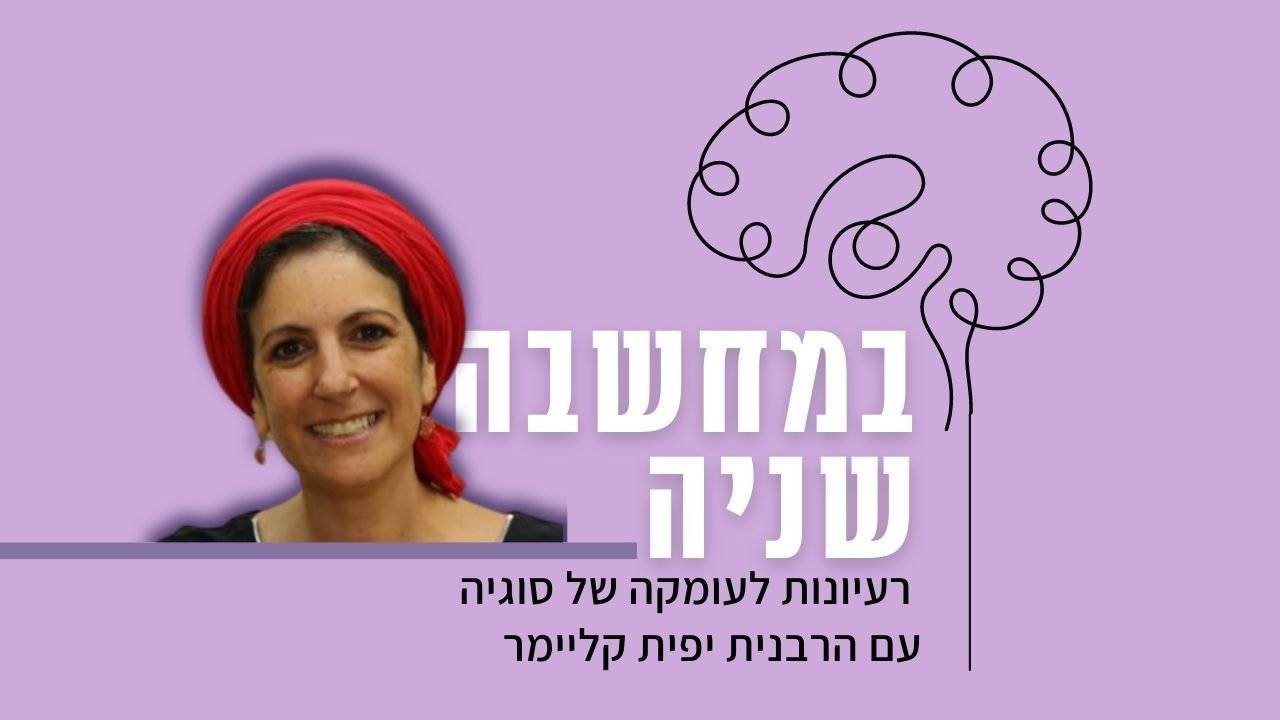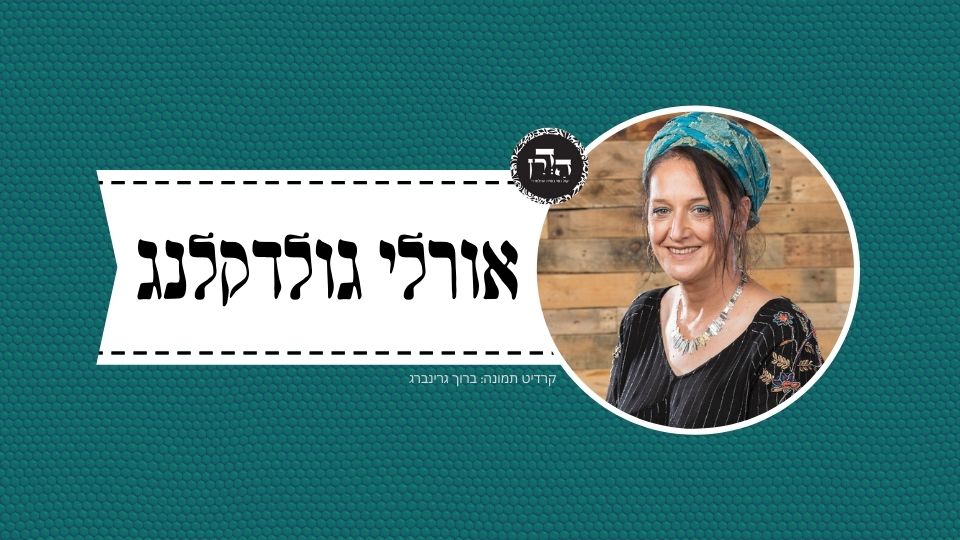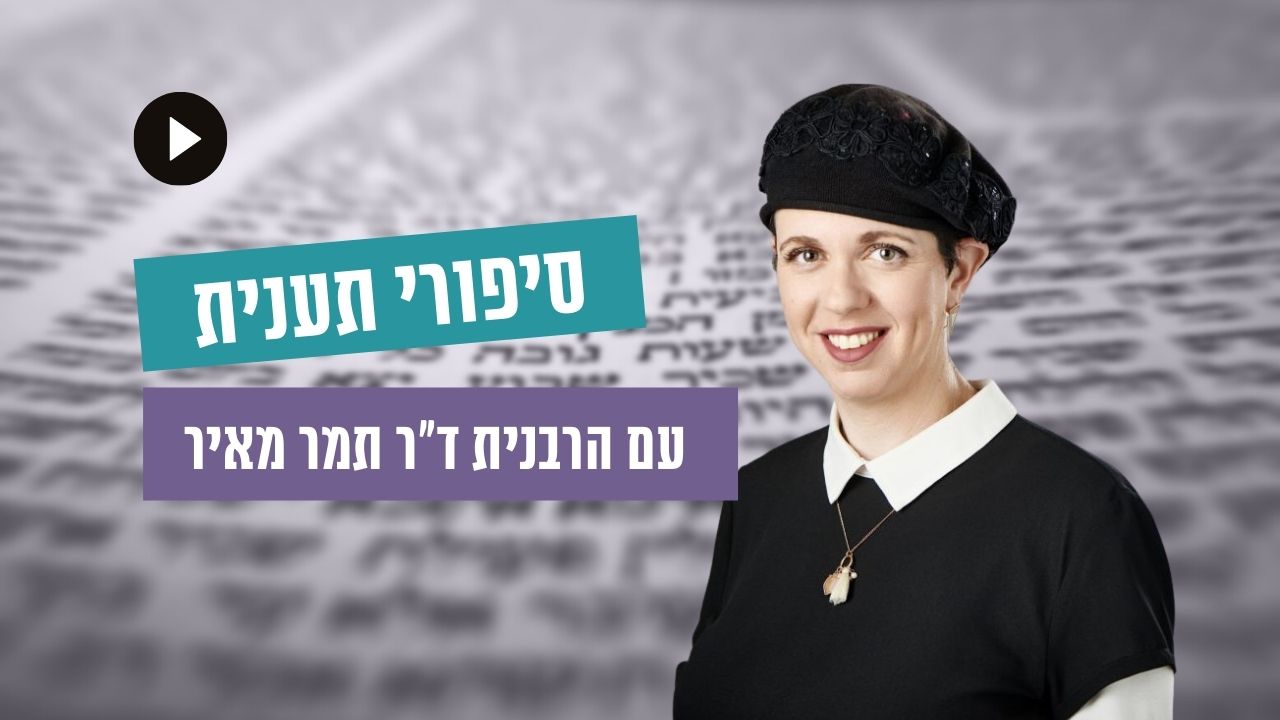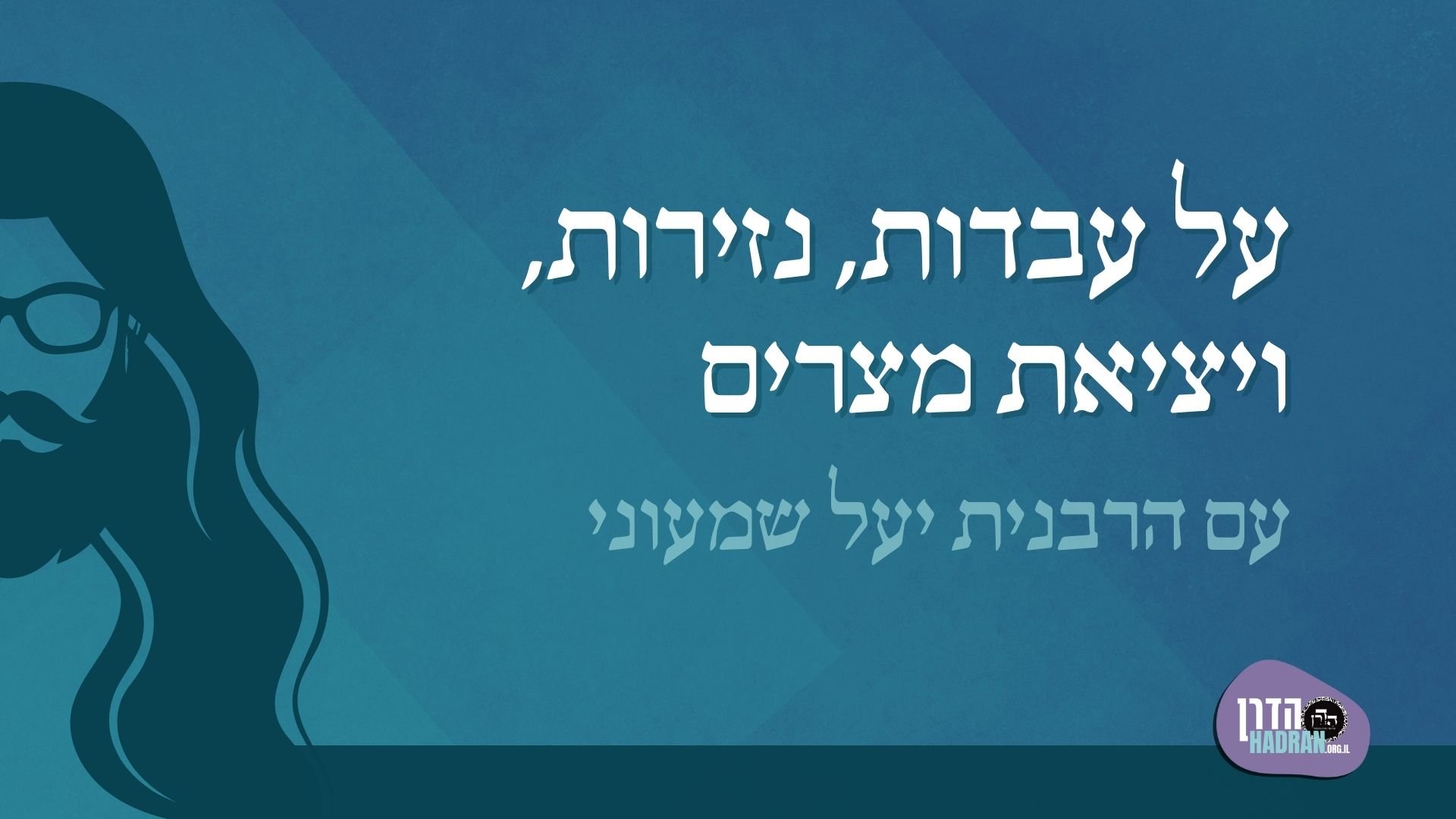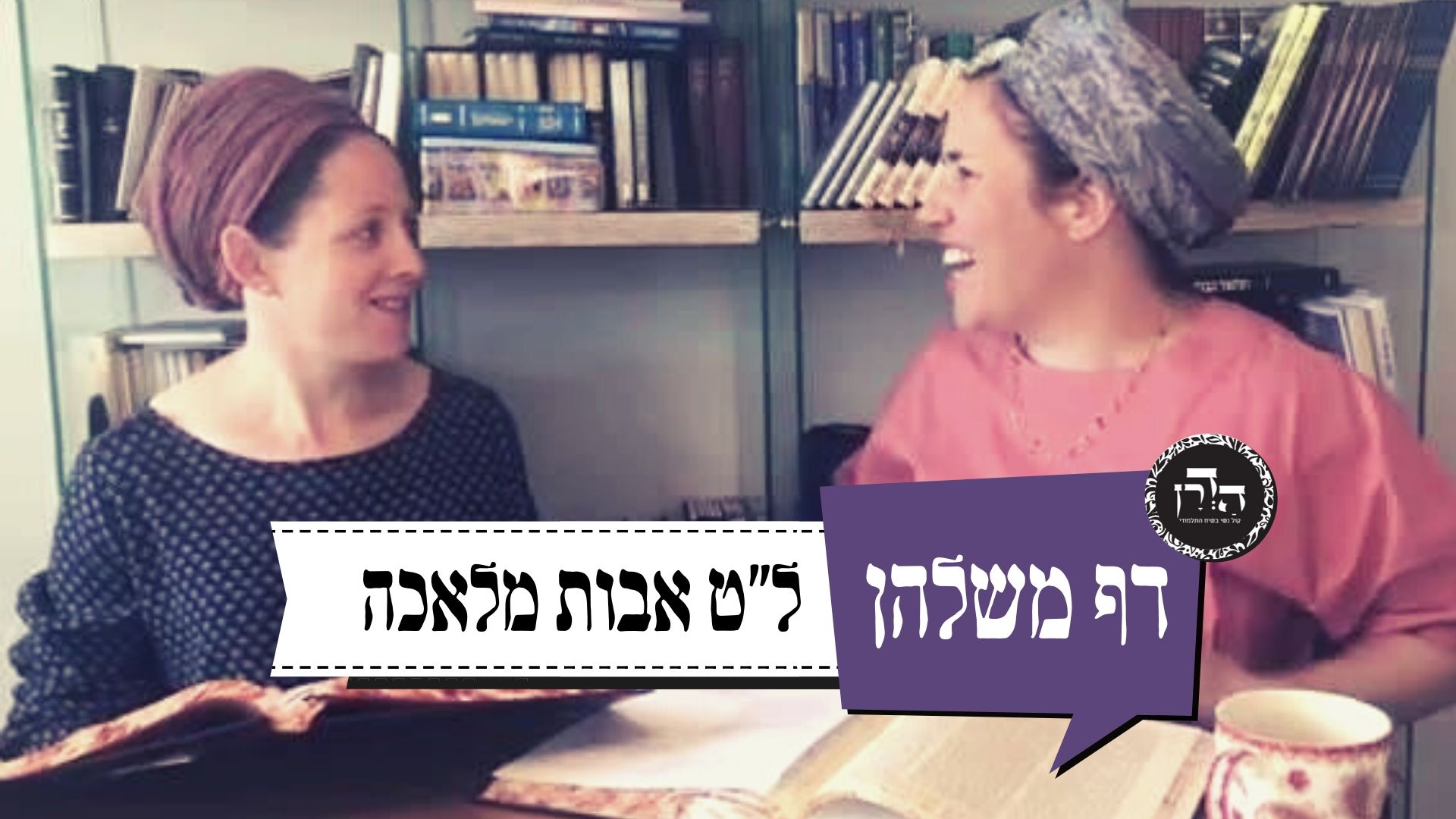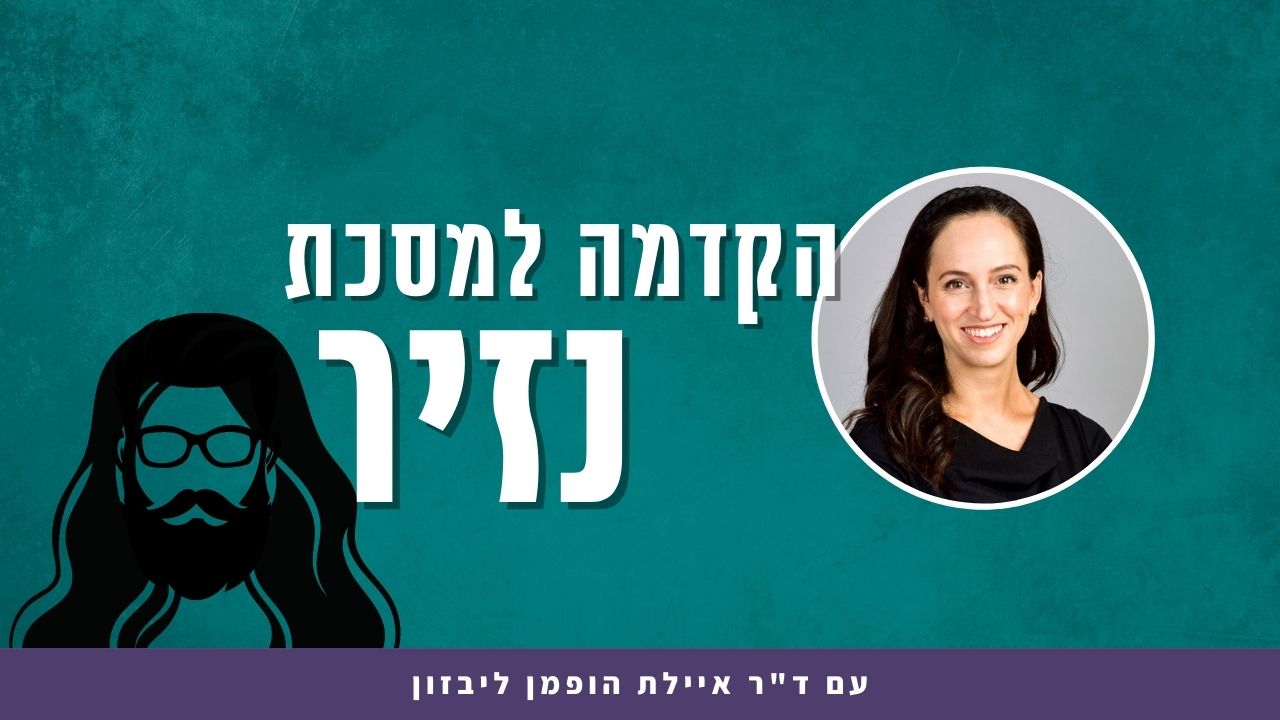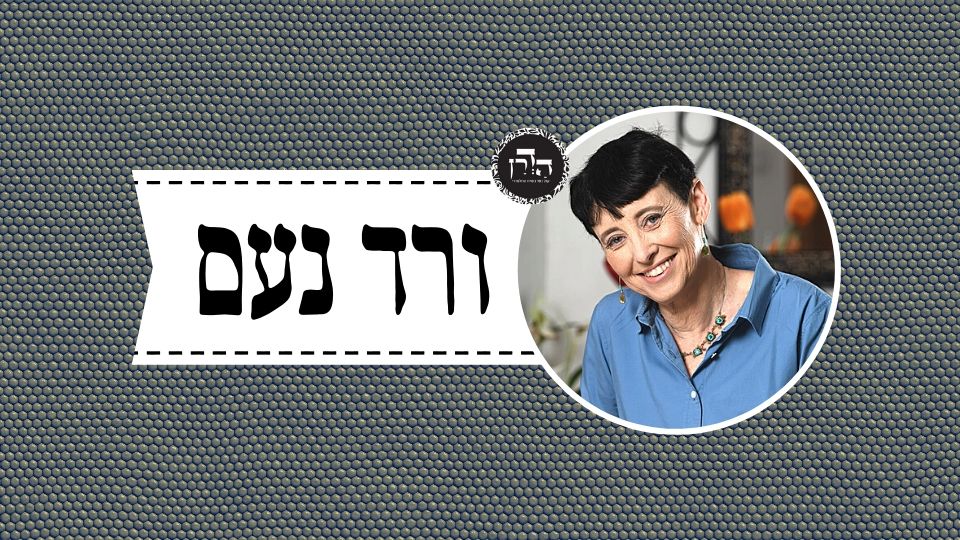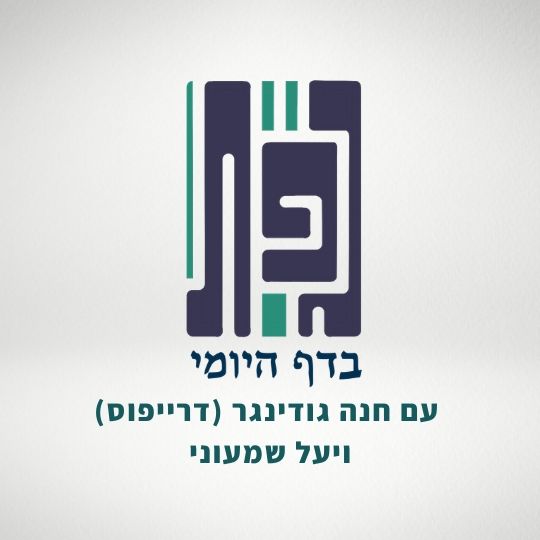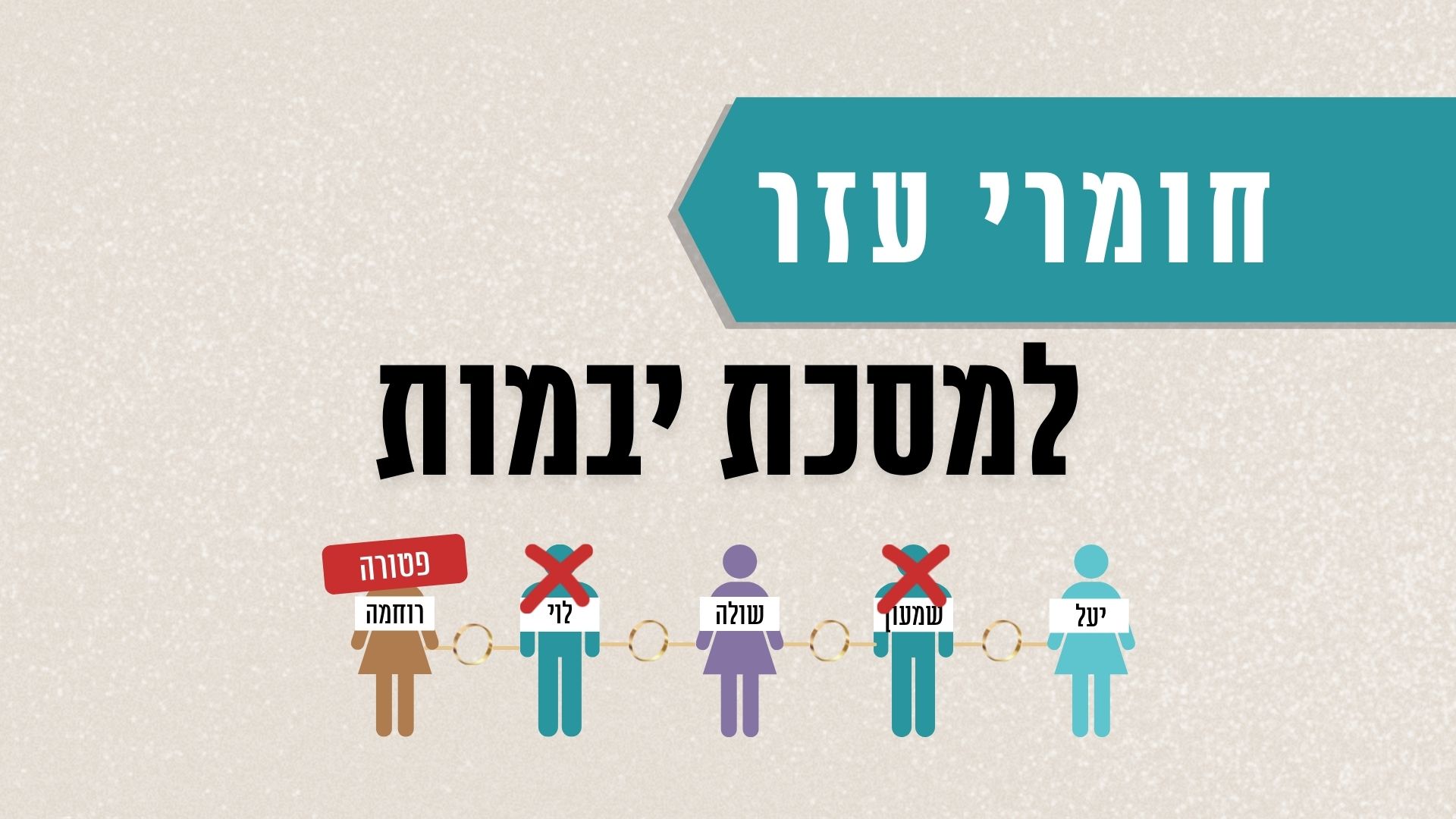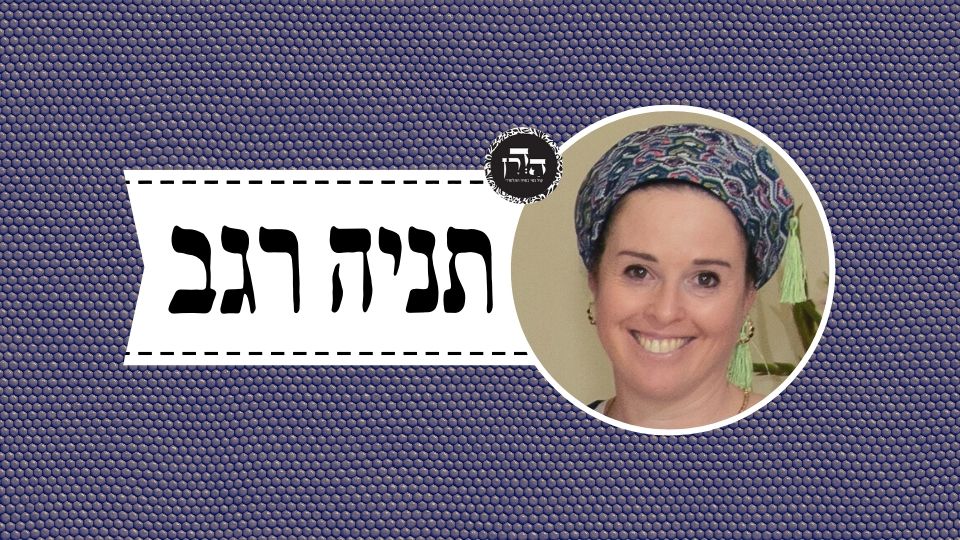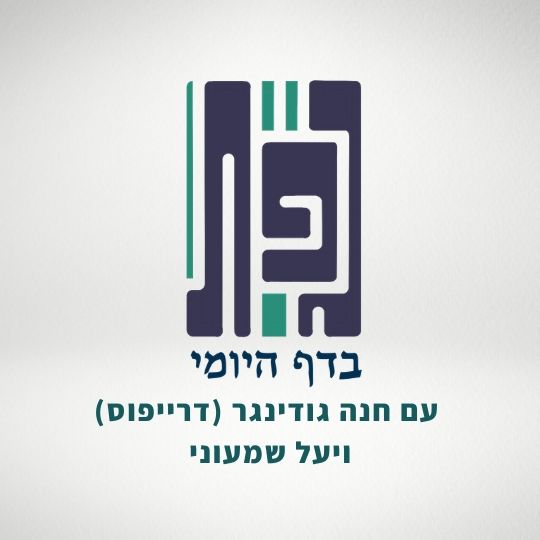מתי אשה נחשבת למעוברת כדי להגיד שאין מטמאות טהרות שנגעה בהן למפרע? האם סימני גופיים רלונטיים? האם חרדה גומרת לסילוק דמים? מהן ההגדרות של הקטיגוריה של מניקה? האם זה קשור לזמן ( חודשים) או להנקה? מהו ההגיון שעומד מאחרוי כל שיטה? יש שחשבו שהדם הופך לחלב הנקה (דם נעכר ונעשה חלב). מתי אשה נחשבת זקנה? הגמרא מביאה כמה אפשרויות סובייקטיביות שקשורות שאיך הן נתפסות בעיני אחרות. מה קורה לגבי זקנה שהפסיקה לקבל מחזור ואז חוזרת לקבל? ומה לגבי קטנה שרואה – מתי נחשבת כבר לאשה רגילה לטמאה מעת לעת? ואיך שונה הדין לגבי קטנה שלא הגיעה זמנה לראות (צעירה יותר) לבין קטנה שכבר הגיעה זמנה לראות (סמוך לגיל )? מה קורה כשמתחילים לראות דם ואז מפסיקים לכמה חודשים?


כלים
הלימוד החודש מוקדש לרפואת פיליס הכט, גיטל פעשא בת מאשה רחל על ידי חברותיה הרבות שאוהבות ומעריכות אותה.
כלים
העמקה
רוצה להבין מה באמת קורה מתחת לפני השטח של הסוגיה?
שיעורים, פודקאסטים והרחבות של מיטב המורות שלנו יפתחו לך עוד זוויות וכיווני חשיבה.
חדשה בלימוד הגמרא?
זה הדף הראשון שלך? איזו התרגשות עצומה! יש לנו בדיוק את התכנים והכלים שיעזרו לך לעשות את הצעדים הראשונים ללמידה בקצב וברמה שלך, כך תוכלי להרגיש בנוח גם בתוך הסוגיות המורכבות ומאתגרות.
פסיפס הלומדות שלנו
גלי את קהילת הלומדות שלנו, מגוון נשים, רקעים וסיפורים. כולן חלק מתנועה ומסע מרגש ועוצמתי.
נדה ט
קוֹשִׁי סָמוּךְ לַלֵּידָה רַחֲמָנָא טַהֲרֵיהּ! אָמַר רַב פַּפֵּי: הַנַּח מֵעֵת לְעֵת דְּרַבָּנַן.
as with regard to blood emitted while experiencing labor pain close to the time of a proper birth, the Merciful One deems it pure, and it should not be treated as the blood of a zava. Rav Pappi says: The miscarriage is not considered a proper birth and therefore her blood is considered the blood of a zava. And leave aside the first baraita and do not raise a contradiction from it, as the halakha that a woman who sees menstrual blood is retroactively impure for a twenty-four-hour period, which is the topic under discussion in that baraita, applies by rabbinic law, and they did not impose this stringency in the case of a woman who miscarries.
רַב פָּפָּא אָמַר: מִידִּי הוּא טַעְמָא אֶלָּא מִשּׁוּם דְּרֹאשָׁהּ כָּבֵד עָלֶיהָ וְאֵבָרֶיהָ כְּבֵדִין עָלֶיהָ, הָכָא נָמֵי רֹאשָׁהּ וְאֵבָרֶיהָ כְּבֵדִין עָלֶיהָ.
Rav Pappa says: That reason for the halakha that a pregnant woman is not retroactively impure when she experiences bleeding is only because her head and limbs feel heavy to her. Her physical state is compromised, which also causes her regular menstrual cycle to cease. Here, too, in the case of a pregnancy that precedes a miscarriage, even if it is not considered a proper birth, her head and limbs felt heavy to her during her pregnancy, and therefore it can be assumed that she did not experience a prior menstrual flow.
בְּעָא מִינֵּיהּ רַבִּי יִרְמְיָה מֵרַבִּי זֵירָא: רָאֲתָה, וְאַחַר כָּךְ הוּכַּר עוּבָּרָהּ, מַהוּ? כֵּיוָן דִּבְעִידָּנָא דַּחֲזַאי לֹא הוּכַּר עוּבָּרָהּ — מְטַמְּיָא, אוֹ דִלְמָא, כֵּיוָן דִּסְמִוךְ לַהּ חֲזַאי — לָא מְטַמְּיָא?
With regard to the mishna’s ruling that the time of a pregnant woman is sufficient, Rabbi Yirmeya asked Rabbi Zeira: If she saw blood and only afterward her fetus became known to all who see her, what is the halakha? One can claim that since at the time when she saw the blood her fetus was not yet known, therefore she becomes impure; or perhaps, since she saw blood in close proximity to the time that her fetus became known, she does not become impure.
אֲמַר לֵיהּ: מִידִּי הוּא טַעְמָא אֶלָּא מִשּׁוּם דְּרֹאשָׁהּ כָּבֵד עָלֶיהָ וְאֵבָרֶיהָ כְּבֵדִין עָלֶיהָ? בְּעִידָּנָא דַּחֲזַאי — אֵין רֹאשָׁהּ כָּבֵד עָלֶיהָ וְאֵין אֵבָרֶיהָ כְּבֵדִין עָלֶיהָ.
Rabbi Zeira said to him: That reason for the halakha that a pregnant woman’s time is sufficient is only because her head and limbs feel heavy to her. In this case, where she was yet unaware of her pregnancy at the time when she saw her menstrual flow, neither her head nor her limbs felt heavy to her. Therefore she is impure retroactively, like any other woman.
בְּעָא מִינֵּיהּ הָהוּא סָבָא מֵרַבִּי יוֹחָנָן: הִגִּיעַ עֵת וִסְתָּהּ בִּימֵי עִבּוּרָהּ וְלֹא בָּדְקָה, מַהוּ? קָא מִיבַּעְיָא לִי אַלִּיבָּא דְּמַאן דְּאָמַר וְסָתוֹת דְּאוֹרָיְיתָא. מַאי? כֵּיוָן דִּוְסָתוֹת דְּאוֹרָיְיתָא בָּעֲיָא בְּדִיקָה, אוֹ דִלְמָא כֵּיוָן דְּדָמֶיהָ מְסוּלָּקִין לָא בָּעֲיָא בְּדִיקָה?
§ A certain elder asked Rabbi Yoḥanan: If the time of a woman’s fixed menstrual cycle arrived during her pregnancy and she did not perform an examination, what is the halakha? I raise this dilemma only according to the opinion of the one who said that the obligation for a woman to perform a self-examination during her fixed menstrual cycle applies by Torah law. What is the halakha? According to that opinion, one can claim that since the obligation of an examination during one’s fixed menstrual cycle is by Torah law, she is required to perform an examination even during her pregnancy. Or perhaps, since her blood has stopped, as a pregnant woman generally does not experience a flow of menstrual blood, she is not required to perform an examination.
אֲמַר לֵיהּ: תְּנֵיתוּהָ, רַבִּי מֵאִיר אוֹמֵר: אִם הָיְתָה בְּמַחֲבֵא וְהִגִּיעַ שְׁעַת וִסְתָּהּ וְלֹא בָּדְקָה — טְהוֹרָה, שֶׁחֲרָדָה מְסַלֶּקֶת אֶת הַדָּמִים. טַעְמָא דְּאִיכָּא חֲרָדָה, הָא לֵיכָּא חֲרָדָה וְהִגִּיעַ וִסְתָּהּ וְלֹא בָּדְקָה — טְמֵאָה.
Rabbi Yoḥanan said to him: You learned the answer to your dilemma from a mishna (39a): Rabbi Meir says: If a woman was in hiding from danger, and the time of her fixed menstrual cycle came and she did not examine herself, nevertheless she is ritually pure, as it may be assumed that she did not experience bleeding because fear dispels the flow of menstrual blood. Rabbi Yoḥanan explains the proof: The reason she is pure is that there is fear, from which it may be inferred that in a case where there is no fear and the time of her fixed menstrual cycle arrived and she did not examine herself, she would be impure.
אַלְמָא וְסָתוֹת דְּאוֹרָיְיתָא, וְכֵיוָן דְּאִיכָּא חֲרָדָה — דָּמֶיהָ מְסוּלָּקִין, וְלָא בָּעֲיָא בְּדִיקָה. הָכָא נָמֵי — דָּמֶיהָ מְסוּלָּקִין, וְלָא בָּעֲיָא בְּדִיקָה.
Rabbi Yoḥanan concludes: Evidently, from the fact that Rabbi Meir rules that a woman is impure if the time of her period passed without a proper examination, he maintains that the obligation for a woman to perform an examination at the time of her fixed menstrual cycle applies by Torah law. And, nevertheless, since there is fear, her blood has stopped and she is not required to perform an examination. Here, too, in the case of a pregnant woman, her blood has stopped and therefore she is not required to perform an examination.
מְנִיקָה עַד שֶׁתִּגְמוֹל וְכוּ׳. תָּנוּ רַבָּנַן: מְנִיקָה שֶׁמֵּת בְּנָהּ בְּתוֹךְ עֶשְׂרִים וְאַרְבַּע חֹדֶשׁ — הֲרֵי הִיא כְּכׇל הַנָּשִׁים, וּמְטַמְּאָה מֵעֵת לְעֵת וּמִפְּקִידָה לִפְקִידָה. לְפִיכָךְ, אִם הָיְתָה מְנִיקָתוֹ וְהוֹלֶכֶת אַרְבַּע אוֹ חָמֵשׁ שָׁנִים — דַּיָּהּ שְׁעָתָהּ, דִּבְרֵי רַבִּי מֵאִיר.
§ The mishna teaches: The time of a nursing woman is sufficient until she weans her child from nursing. The Sages taught in a baraita (see Tosefta 2:1): With regard to a nursing woman whose child dies within twenty-four months of his birth, she is like all other women with regard to her impurity status after seeing menstrual blood, and therefore she transmits ritual impurity retroactively for a twenty-four-hour period or from examination to examination. Therefore, if a woman continued to nurse her child for four or five years, her time is sufficient and she does not retroactively transmit impurity for the entire four or five years. This is the statement of Rabbi Meir.
רַבִּי יְהוּדָה וְרַבִּי יוֹסֵי וְרַבִּי שִׁמְעוֹן אוֹמְרִים: דַּיָּין שְׁעָתָן כׇּל עֶשְׂרִים וְאַרְבַּע חֹדֶשׁ, לְפִיכָךְ אִם הָיְתָה מְנִיקָתוֹ אַרְבַּע וְחָמֵשׁ שָׁנִים — מְטַמְּאָה מֵעֵת לְעֵת וּמִפְּקִידָה לִפְקִידָה.
Rabbi Yehuda and Rabbi Yosei and Rabbi Shimon all say: With regard to nursing women, their time is sufficient for an entire twenty-four months. Therefore, if she nursed him for four or five years, then after the first twenty-four months have passed, she transmits ritual impurity retroactively for a twenty-four-hour period or from examination to examination.
כְּשֶׁתִּמָּצֵא לוֹמַר, לְדִבְרֵי רַבִּי מֵאִיר — דָּם נֶעְכָּר וְנַעֲשָׂה חָלָב, לְדִבְרֵי רַבִּי יוֹסֵי וְרַבִּי יְהוּדָה וְרַבִּי שִׁמְעוֹן — אֵבָרֶיהָ מִתְפָּרְקִין, וְאֵין נַפְשָׁהּ חוֹזֶרֶת עַד עֶשְׂרִים וְאַרְבַּע חֹדֶשׁ.
The Gemara discusses the reasoning of each opinion: When you analyze the matter you will find that one must say that according to the statement of Rabbi Meir the case is that menstrual blood spoils and becomes milk. Therefore, it follows that this status continues for as long as she is nursing. By contrast, according to the statement of Rabbi Yosei and Rabbi Yehuda and Rabbi Shimon, her limbs become dislocated and her spirit, i.e., her full strength and her regular menstrual cycle, does not return to her until twenty-four months have passed.
״לְפִיכָךְ״ דְּרַבִּי מֵאִיר לְמָה לִי? מִשּׁוּם ״לְפִיכָךְ״ דְּרַבִּי יוֹסֵי.
The Gemara asks: Why do I need the statement of Rabbi Meir: Therefore, if a woman continued to nurse her child for four or five years, her time is sufficient? Since his reasoning is that the menstrual blood of a nursing woman spoils and becomes milk, it is obvious that this applies as long as she continues to nurse him. The Gemara answers: This statement is indeed extraneous. It merely serves to form a parallel between the statement of Rabbi Meir and that of the other Sages. In other words, it was appended due to the statement: Therefore, if she was nursing him for four or five years, then after the first twenty-four months have passed, she transmits ritual impurity retroactively for a twenty-four-hour period or from examination to examination, which is referring to the opinion of Rabbi Yosei.
וּ״לְפִיכָךְ״ דְּרַבִּי יוֹסֵי לְמָה לִי? מַהוּ דְּתֵימָא רַבִּי יוֹסֵי תַּרְתֵּי אִית לֵיהּ, קָא מַשְׁמַע לַן.
The Gemara further asks: And why do I need the statement: Therefore, if she was nursing him for four or five years, then after the first twenty-four months have passed, she transmits ritual impurity retroactively for a twenty-four-hour period or from examination to examination, which is referring to the opinion of Rabbi Yosei? The Gemara explains that this clause is necessary, lest you say that Rabbi Yosei holds that there are two reasons that a pregnant woman’s time is sufficient, both because her blood spoils and because her limbs become dislocated. Therefore, the additional clause teaches us that Rabbi Yosei maintains that the reason is only that her limbs become dislocated, and consequently she transmits retroactive impurity after twenty-four months.
תַּנְיָא נָמֵי הָכִי: דָּם נֶעְכָּר וְנַעֲשָׂה חָלָב, דִּבְרֵי רַבִּי מֵאִיר. רַבִּי יוֹסֵי אוֹמֵר: אֵבָרֶיהָ מִתְפָּרְקִין, וְאֵין נַפְשָׁהּ חוֹזֶרֶת עָלֶיהָ עַד עֶשְׂרִים וְאַרְבַּע חֹדֶשׁ. אָמַר רַבִּי אִלְעַאי: מַאי טַעְמָא דְּרַבִּי מֵאִיר? דִּכְתִיב: ״מִי יִתֵּן טָהוֹר מִטָּמֵא לֹא אֶחָד״.
That explanation is also taught in a baraita: Menstrual blood spoils and becomes milk; this is the statement of Rabbi Meir. Rabbi Yosei says: Her limbs become dislocated and her spirit does not return to her until twenty-four months have passed. The Gemara analyzes their respective reasons. Rabbi Ilai says: What is the reason of Rabbi Meir? It is based upon a verse, as it is written: “Who can bring a pure thing out of an impure? Is it not the One?” (Job 14:4). In other words, is it not true that the One, i.e., God, can bring a pure thing, such as milk, out of an impure thing, such as menstrual blood?
וְרַבָּנַן? אָמַר רַבִּי יוֹחָנָן: זוֹ שִׁכְבַת זֶרַע, שֶׁהוּא — טָמֵא, וְאָדָם הַנּוֹצֵר מִמֶּנּוּ — טָהוֹר.
The Gemara asks: And the other Sages, i.e., Rabbi Yosei, Rabbi Yehuda, and Rabbi Shimon, how do they interpret this verse? Rabbi Yoḥanan says that according to those Sages this verse is referring to semen, which is impure, and yet the person that is formed from it is pure.
וְרַבִּי אֶלְעָזָר אוֹמֵר: אֵלּוּ מֵי הַנִּדָּה, שֶׁהַמַּזֶּה וּמַזִּין עָלָיו — טָהוֹר, וְנוֹגֵעַ — טָמֵא. וּמַזֶּה טָהוֹר? וְהָכְתִיב: ״וּמַזֵּה מֵי הַנִּדָּה יְכַבֵּס בְּגָדָיו״! מַאי ״מַזֶּה״? — נוֹגֵעַ.
And Rabbi Elazar says: Those Sages maintain that this verse is referring to the water of sprinkling, i.e., the purification water mixed with the ashes of the red heifer. As the individual who sprinkles the water and the one upon whom the water is sprinkled are both pure, and yet one who touches the purification water is rendered impure. The Gemara asks: Is the one who sprinkles the water actually pure? But isn’t it written: “He who sprinkles the water of sprinkling will wash his clothes, and he who touches the water of sprinkling will be impure until evening” (Numbers 19:21)? The Gemara responds: What is the meaning of the term: “He who sprinkles”? It means: He who touches.
וְהָכְתִיב ״מַזֶּה״, וְהָכְתִיב ״נוֹגֵעַ״! וְעוֹד, ״מַזֶּה״ בָּעֵי כִּבּוּס, ״נוֹגֵעַ״ לָא בָּעֵי כִּבּוּס! אֶלָּא, מַאי ״מַזֶּה״? נוֹשֵׂא.
The Gemara asks: But it is written: “He who sprinkles,” and it is written in the same verse: “And he who touches.” How can these two terms be referring to the same individual? And furthermore, that verse states that one who sprinkles requires the washing of his clothes, indicating a severe level of impurity, whereas one who touches does not require the washing of his clothes. Evidently, the phrase “he who sprinkles” is not referring to one who touches. Rather, the Gemara explains: What is the meaning of: “He who sprinkles”? This is referring to one who carries the purification waters.
וְלִיכְתּוֹב ״נוֹשֵׂא״! קָא מַשְׁמַע לַן דְּעַד דְּדָרֵי כְּשִׁיעוּר הַזָּאָה. הָנִיחָא לְמַאן דְּאָמַר הַזָּאָה צְרִיכָה שִׁיעוּר, אֶלָּא לְמַאן דְּאָמַר אֵין צְרִיכָה שִׁיעוּר, מַאי אִיכָּא לְמֵימַר?
The Gemara asks: But if so, let the Torah write explicitly: One who carries. Why does it state “he who sprinkles” when it is referring to carrying? The Gemara answers: The use of the term sprinkling in reference to carrying teaches us that one becomes impure only by carrying the measure required for sprinkling. The Gemara asks: This works out well according to the one who said that sprinkling requires a minimum measure of water. But according to the one who said that sprinkling does not require a minimum measure of water, what can be said? According to this opinion, there is apparently no concept of a measure required for sprinkling.
אֲפִילּוּ לְמַאן דְּאָמַר אֵינָהּ צְרִיכָה שִׁיעוּר, הָנֵי מִילֵּי — אַגַּבָּא דְּגַבְרָא, אֲבָל בְּמָנָא — בָּעֵינַן שִׁיעוּר. כְּדִתְנַן: כַּמָּה יִהְיוּ בַּמַּיִם וִיהֵא בָּהֶן כְּדֵי הַזָּאָה? כְּדֵי שֶׁיִּטְבּוֹל רָאשֵׁי גִבְעוֹלִין וְיַזֶּה.
The Gemara answers: Even according to the one who said that sprinkling does not require a minimum measure of water, that statement applies only to the measure of purification water that must be sprinkled onto the back, i.e., onto the body, of the impure man. In this regard, any amount will suffice. But with regard to the vessel into which one dips the hyssop in order to sprinkle the water, it requires a certain measure of water. As we learned in a mishna (Para 12:5): How much water must be in the vessel so that it will be enough for sprinkling? It must be enough to dip the tops of the stems of the hyssop branch, used in the rite of purification, into the water and sprinkle it.
וְהַיְינוּ דְּאָמַר שְׁלֹמֹה: ״אָמַרְתִּי אֶחְכָּמָה וְהִיא רְחוֹקָה מִמֶּנִּי״.
The Gemara concludes the discussion of the purification waters with the following observation: And that is the meaning of that which King Solomon said: “I said I would become wise, but it eludes me” (Ecclesiastes 7:23). According to tradition, even Solomon in his great wisdom could not understand the contradictory nature of the sprinkling of purification water, as it renders an impure person pure, and a pure person impure.
אֵיזוֹ הִיא זְקֵנָה? כֹּל שֶׁעָבְרוּ עָלֶיהָ שָׁלֹשׁ עוֹנוֹת [סָמוּךְ לְזִקְנָתָהּ]. הֵיכִי דָמֵי סָמוּךְ לְזִקְנָתָהּ? אָמַר רַב יְהוּדָה: כֹּל שֶׁחַבְרוֹתֶיהָ אוֹמְרוֹת עָלֶיהָ ״זְקֵנָה הִיא״. וְרַבִּי שִׁמְעוֹן אוֹמֵר:
§ The mishna teaches: Who is the woman characterized as an elderly woman in this context? It is any woman for whom three typical menstrual cycles of thirty days passed at a stage of her life close to her old age, during which she saw no menstrual blood. The Gemara asks: What is considered close to old age? Rav Yehuda says: Any woman about whom her friends say that she is an elderly woman. And Rabbi Shimon says:
כֹּל שֶׁקּוֹרִין לָהּ ״אִמָּא אִמָּא״ וְאֵינָהּ בּוֹשָׁה. רַבִּי זֵירָא וְרַבִּי שְׁמוּאֵל בַּר רַב יִצְחָק — חַד אָמַר: כֹּל שֶׁאֵינָהּ מַקְפֶּדֶת, וְחַד אָמַר: כֹּל שֶׁאֵינָהּ בּוֹשָׁה. מַאי בֵינַיְיהוּ? אִיכָּא בֵינַיְיהוּ: בּוֹשָׁה וְאֵינָהּ מַקְפֶּדֶת.
It is any woman who is old enough that people call her: Mother [Imma], Mother, and she is not embarrassed. Rabbi Zeira and Rabbi Shmuel bar Rav Yitzḥak disagree with regard to this matter. One says that the definition is any woman who does not take offense about being called: Mother, Mother. And the other one says that it is any woman who is not embarrassed by this. The Gemara asks: What is the difference between their definitions? The Gemara answers: The practical difference between them is in a case where a woman is embarrassed but she does not take offense when called: Mother.
וְכַמָּה עוֹנָה? אָמַר רֵישׁ לָקִישׁ מִשּׁוּם רַבִּי יְהוּדָה נְשִׂיאָה: עוֹנָה בֵּינוֹנִית שְׁלֹשִׁים יוֹם, וְרָבָא אָמַר רַב חִסְדָּא: עֶשְׂרִים יוֹם. וְלָא פְּלִיגִי, מָר קָחָשֵׁיב יְמֵי טוּמְאָה וִימֵי טׇהֳרָה, וּמָר לָא חָשֵׁיב יְמֵי טוּמְאָה.
The Gemara asks: And how long is a typical menstrual cycle? Reish Lakish says in the name of Rabbi Yehuda Nesia: The average menstrual cycle is thirty days long. And Rava says that Rav Ḥisda says: It is twenty days. The Gemara notes: And they do not disagree. One Sage, Rav Yehuda Nesia, counts all the days of her cycle, including the days of impurity and days of purity. And the other Sage, Rav Ḥisda, does not count the days of impurity, i.e., the seven days of impurity of a menstruating woman and the three days of the sighting of ziva.
תָּנוּ רַבָּנַן: זְקֵנָה שֶׁעָבְרוּ עָלֶיהָ שָׁלֹשׁ עוֹנוֹת, וְרָאֲתָה — דַּיָּהּ שְׁעָתָהּ. וְעוֹד עָבְרוּ עָלֶיהָ שָׁלֹשׁ עוֹנוֹת, וְרָאֲתָה — דַּיָּהּ שְׁעָתָהּ. וְעוֹד עָבְרוּ עָלֶיהָ שָׁלֹשׁ עוֹנוֹת, וְרָאֲתָה — הֲרֵי הִיא כְּכׇל הַנָּשִׁים, וּמְטַמְּאָה מֵעֵת לְעֵת וּמִפְּקִידָה לִפְקִידָה.
§ The Sages taught in a baraita: With regard to an elderly woman for whom three typical menstrual cycles of thirty days passed and then she saw a discharge of menstrual blood, her time is sufficient. And if a further three typical menstrual cycles of thirty days passed for her and she subsequently saw a discharge of menstrual blood, her time is sufficient. And if yet a further three typical menstrual cycles of thirty days passed for her and then she saw a discharge of menstrual blood, after this third time she is now like all normal women, and she transmits impurity retroactively for a twenty-four-hour period or from examination to examination.
וְלָא (מִיבַּעְיָא) שֶׁכִּוְּונָה, אֶלָּא אֲפִילּוּ פִּיחֲתָה, וַאֲפִילּוּ הוֹתִירָה.
The baraita continues: And it is not necessary to teach this halakha in a case where she experienced the three sightings in even intervals of ninety days, as in such a case it is obvious that she assumes the status of a normal woman who transmits impurity retroactively. Rather, even if she had intervals where she decreased, i.e., experienced bleeding at intervals smaller than that, or even if she increased and experienced bleeding at greater intervals, she still assumes the status of a woman who transmits impurity retroactively.
״אֲפִילּוּ פִּיחֲתָה״, וְלָא מִבָּעֲיָא כִּוְּונָה? אַדְּרַבָּה, כִּי כִּוְּונָה — קָבְעָה לָהּ וִסְתָּהּ, וְדַיָּה שְׁעָתָהּ!
The Gemara infers: The wording of the baraita: Even if she had intervals where she decreased, indicates that it is not necessary to teach the halakha in the case of a woman who experienced bleeding at even intervals. This is puzzling, as on the contrary, if she experienced bleeding at even intervals she thereby fixes her menstrual cycle as being every thirty days, and according to Rabbi Dosa (4b) the halakha is that her time is sufficient.
וְכִי תֵּימָא, רַבָּנַן הִיא, דִּפְלִיגִי עֲלֵיהּ דְּרַבִּי דּוֹסָא, דְּאָמְרִי: אִשָּׁה שֶׁיֵּשׁ לָהּ וֶסֶת מְטַמְּאָה מֵעֵת לְעֵת, אִיפְּכָא מִבְּעֵי לֵיהּ, וְלֵימָא: וְלֹא שֶׁפִּיחֲתָה וְהוֹתִירָה, אֶלָּא אֲפִילּוּ כִּוְּונָה!
And if you would say that this is in accordance with the opinion of the Rabbis, who disagree with Rabbi Dosa, as they say that a woman who has a fixed menstrual cycle transmits impurity retroactively for a twenty-four-hour period, then the baraita should have been written in the opposite fashion: Let it say: And the halakha that an elderly woman who sees menstrual blood at intervals returns to the status of normal women and transmits impurity retroactively applies not only to a case where she had intervals where she decreased or increased, i.e., she experienced bleeding less or more than ninety days apart, but this halakha applies even if she experienced bleeding at even intervals.
תְּנִי: לֹא שֶׁפִּיחֲתָה וְהוֹתִירָה, אֶלָּא אֲפִילּוּ כִּוְּונָה. וְאִיבָּעֵית אֵימָא, הָכִי קָאָמַר: וְלֹא שֶׁכִּוְּונָה, אֶלָּא שֶׁפִּיחֲתָה וְהוֹתִירָה, אֲבָל כִּוְּונָה — קָבְעָה לָהּ וֶסֶת, וְדַיָּה שְׁעָתָהּ. וּמַנִּי? רַבִּי דּוֹסָא הִיא.
The Gemara answers: Teach in the baraita in accordance with this altered version: And the halakha applies not only to a case where she had intervals where she decreased or increased, but this is the halakha even if she experienced bleeding at even intervals. And if you wish say instead that this is what the baraita is saying: The halakha that an elderly woman is retroactively impure does not apply to a case when she saw menstrual blood at even intervals. Rather, it applies only if she decreased or increased, i.e., she experienced bleeding at intervals less or more than ninety days apart. But if she saw blood at even intervals, she thereby fixes a set menstrual cycle of ninety days and her time is sufficient. The Gemara adds: And if so, in accordance with whose opinion is this baraita? It is in accordance with the opinion of Rabbi Dosa.
רַבִּי אֱלִיעֶזֶר אוֹמֵר: כָּל אִשָּׁה שֶׁעָבְרוּ עָלֶיהָ וְכוּ׳. תַּנְיָא: אָמַר לָהֶם רַבִּי אֱלִיעֶזֶר לַחֲכָמִים: מַעֲשֶׂה בְּרִיבָה אַחַת בְּהַיְתָלוֹ, שֶׁהִפְסִיקָה שָׁלֹשׁ עוֹנוֹת, וּבָא מַעֲשֶׂה לִפְנֵי חֲכָמִים וְאָמְרוּ: דַּיָּהּ שְׁעָתָהּ.
§ The mishna teaches that Rabbi Eliezer says: With regard to any woman for whom three typical menstrual cycles passed during which she saw no menstrual blood, if she experiences bleeding, her time is sufficient. Rabbi Yosei says: In the case of a pregnant woman and a nursing woman for whom three menstrual cycles passed during which they saw no menstrual blood, if she then saw blood her time is sufficient. Rabbi Eliezer cites a proof for his opinion. It is taught in a baraita: There was an incident involving a certain girl in the village of Hitlo who stopped menstruating for three typical menstrual cycles, after which she experienced menstruation. And the matter came before the Sages, and they said that her time is sufficient and she does not transmit impurity retroactively.
אָמְרוּ לוֹ: אֵין שְׁעַת הַדְּחָק רְאָיָה. מַאי שְׁעַת הַדְּחָק? אִיכָּא דְאָמְרִי: שְׁנֵי בַצּוֹרֶת הֲווֹ, אִיכָּא דְאָמְרִי: טְהָרוֹת אַפֵּישׁ (לַעֲבִידָא) [וַעֲבַדָא], וְחַשּׁוּ רַבָּנַן לְהֶפְסֵד דִּטְהָרוֹת.
The other Sages said to Rabbi Eliezer: Decisions rendered in exigent circumstances are no proof. The Gemara asks: What were the exigent circumstances? Some say that it was during the years of famine, and some say that the girl had handled many ritually pure items and the Sages were concerned for the loss of those pure items if they were ruled retroactively impure.
תָּנוּ רַבָּנַן: מַעֲשֶׂה, וְעָשָׂה רַבִּי כְּרַבִּי אֱלִיעֶזֶר. לְאַחַר שֶׁנִּזְכַּר, אָמַר: כְּדַי הוּא רַבִּי אֱלִיעֶזֶר לִסְמוֹךְ עָלָיו בִּשְׁעַת הַדְּחָק. מַאי ״לְאַחַר שֶׁנִּזְכַּר״? אִילֵּימָא לְאַחַר שֶׁנִּזְכַּר דְּאֵין הֲלָכָה כְּרַבִּי אֱלִיעֶזֶר אֶלָּא כְּרַבָּנַן, בִּשְׁעַת הַדְּחָק הֵיכִי עָבֵיד כְּוָותֵיהּ?
The Sages taught in a baraita: There was an incident in which Rabbi Yehuda HaNasi acted by ruling that the halakha is in accordance with the opinion of Rabbi Eliezer. After he remembered that Rabbi Eliezer’s colleagues disagree with him on this matter and that he had apparently ruled incorrectly, he nevertheless said: Rabbi Eliezer is worthy to rely upon in exigent circumstances. The Gemara asks: What is the meaning of: After he remembered? If we say that this means after he remembered that the halakha is not in accordance with the opinion of Rabbi Eliezer, but in accordance with the opinion of the Rabbis, if so, how could he act in accordance with Rabbi Eliezer even in exigent circumstances, since the halakha has been decided against him?
אֶלָּא, דְּלָא אִיתְּמַר הִילְכְתָא לָא כְּמָר וָלֹא כְּמָר, וּמַאי ״לְאַחַר שֶׁנִּזְכַּר״? לְאַחַר שֶׁנִּזְכַּר דְּלָאו יָחִיד פְּלִיג עֲלֵיהּ, אֶלָּא רַבִּים פְּלִיגִי עֲלֵיהּ, אֲמַר: כְּדַי הוּא רַבִּי אֱלִיעֶזֶר לִסְמוֹךְ עָלָיו בִּשְׁעַת הַדְּחָק.
Rather, one must say that the halakha had not been stated on this matter, neither in accordance with the opinion of this Sage, Rabbi Eliezer, nor in accordance with the opinion of that Sage, the Rabbis. And what is the meaning of: After he remembered? After Rabbi Yehuda HaNasi remembered that it was not a lone authority who disagrees with Rabbi Eliezer, but it was several Sages who disagreed with him, and there is a principle that the halakha is in accordance with the opinion of the many over the opinion of an individual, he nevertheless said: Rabbi Eliezer is worthy to rely upon in exigent circumstances.
תָּנוּ רַבָּנַן: תִּינוֹקֶת שֶׁלֹּא הִגִּיעַ זְמַנָּהּ לִרְאוֹת וְרָאֲתָה, פַּעַם רִאשׁוֹנָה — דַּיָּהּ שְׁעָתָהּ, שְׁנִיָּה — דַּיָּהּ שְׁעָתָהּ, שְׁלִישִׁית — הֲרֵי הִיא כְּכׇל הַנָּשִׁים, וּמְטַמְּאָה מֵעֵת לְעֵת וּמִפְּקִידָה לִפְקִידָה.
The Gemara continues the discussion of a woman who fails to experience menstruation for three typical menstrual cycles. The Sages taught in a baraita: With regard to a young girl, less than twelve years old, whose time to see the flow of menstrual blood has not arrived and she saw menstrual blood, after the first time her time is sufficient. After the second time, again her time is sufficient. After the third time, she is like all normal adult women, and therefore she transmits impurity retroactively for a twenty-four–hour period or from examination to examination.
עָבְרוּ עָלֶיהָ שָׁלֹשׁ עוֹנוֹת וְרָאֲתָה — דַּיָּהּ שְׁעָתָהּ, וְעוֹד עָבְרוּ עָלֶיהָ שָׁלֹשׁ עוֹנוֹת וְרָאֲתָה — דַּיָּהּ שְׁעָתָהּ, וְעוֹד עָבְרוּ עָלֶיהָ שָׁלֹשׁ עוֹנוֹת וְרָאֲתָה — הֲרֵי הִיא כְּכׇל הַנָּשִׁים, וּמְטַמְּאָה מֵעֵת לְעֵת וּמִפְּקִידָה לִפְקִידָה.
The baraita continues: If she then passed three expected menstrual cycles without experiencing bleeding, and then she saw menstrual blood, she returns to the status of a young girl and her time is sufficient. And if it further happens that she again passed three expected menstrual cycles without experiencing bleeding, and then she saw menstrual blood, her time is sufficient. And if she passed three further cycles without experiencing bleeding, and she subsequently saw menstrual blood, she is like all normal adult women. She is considered a woman who experiences regular menstruation at long intervals with breaks of ninety days. And therefore she transmits impurity retroactively for a twenty-four-hour period or from examination to examination.
וּכְשֶׁהִגִּיעַ זְמַנָּהּ לִרְאוֹת, פַּעַם רִאשׁוֹנָה — דַּיָּהּ שְׁעָתָהּ, שְׁנִיָּה — מְטַמְּאָה מֵעֵת לְעֵת וּמִפְּקִידָה לִפְקִידָה, עָבְרוּ עָלֶיהָ שָׁלֹשׁ עוֹנוֹת וְרָאֲתָה — דַּיָּהּ שְׁעָתָהּ.
The baraita concludes: And with regard to a girl whose time to see the flow of menstrual blood has arrived, i.e., she has reached the age of twelve, when she sees menstrual blood for the first time, her time is sufficient. After the second time, she transmits impurity retroactively for a twenty-four-hour period or from examination to examination. If three menstrual cycles then passed without her experiencing bleeding, and afterward she saw menstrual blood, her time is sufficient. This is in accordance with the opinion of Rabbi Eliezer, who holds that any woman who passed three expected menstrual cycles without experiencing bleeding is presumed not to be menstruating.
אָמַר מָר: עָבְרוּ עָלֶיהָ שָׁלֹשׁ עוֹנוֹת — דַּיָּהּ שְׁעָתָהּ.
The Master said in the baraita: If the young girl who had started menstruating passed three expected menstrual cycles without experiencing bleeding and then saw menstrual blood, she returns to the status of a young girl and her time is sufficient.
